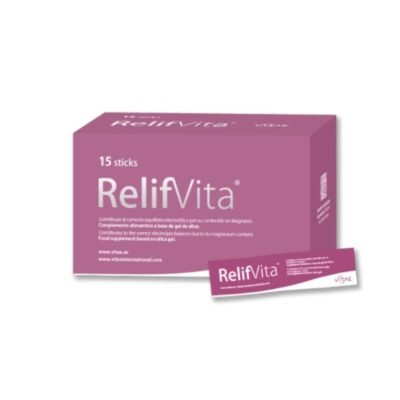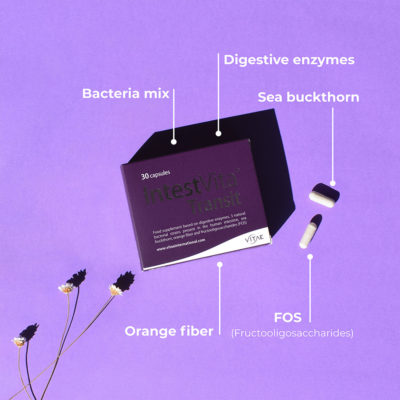What do we mean by bad digestions? On many occasions, we are not even aware that our digestive system is not working properly since we normalize things such as flatulence and acidity, among others. Technically, poor digestion is when your body is not taking full advantage of/ not absorbing the nutrients you ingest, which leads to feeling some discomfort in the form of heaviness, tiredness, heartburn, gas, etc.
What problems can appear in bad digestions?
- Constipation
- Diarrhea
- Stomach flu
- Acidity
- Heaviness
- Abdominal pain
When bad digestions occurs, what happens is that food cannot be absorbed well in the small intestine, therefore, the waste that passes through the large intestine increases. In this part of our body there are many bacteria that ferment these residues, producing gas and swelling, triggering poor digestion.
How can we prevent poor digestion?
- Avoid heavy meals
- Avoid eating late at night
- Do not self-medicate
- Reduce intake of alcoholic beverages
- Probiotics
- Exercise to get the body working
Can probiotics help with poor digestion?
First of all, what are probiotics ? They are foods or supplements that contain live microorganisms intended to maintain or improve the “good” bacteria ( normal microbiota ) of the body. They can balance the intestinal microbiota and improve some gastrointestinal symptoms. Ingesting adequate amounts, they provide great health benefits, increase the defenses of the immune system, preventing infectious and inflammatory diseases, such as diarrhoea, ulcers, allergies…
Its consumption is recommended in situations of intestinal flora imbalance, which usually occurs after the use of antibiotics, stress or when you do not have a good diet.
More advantages of consuming foods that contain probiotics may be that it helps control cholesterol, helps prevent food intolerances, such as digesting lactose. It also helps prevent cardiovascular diseases and obesity problems, intestinal diseases such as irritable bowel syndrome, Crohn’s disease or even intestinal inflammation.
What foods naturally contain probiotics ?
- Sauerkraut (fermented cabbage): they have the ability to produce lactic acid responsible for energy production
- Natural yogurt: excellent probiotic , as it contains natural bacteria that help keep the intestine healthy
- Kombucha : fermented drink, contains a group of bacteria and fungi
- Miso or fermented soy: regulator of blood and digestive pressure
- Kimchi : Korean dish and one of the best foods to recover the intestinal flora
- Kefir: higher content of good bacteria and less lactose. Great purifier of blood, bile, liver and kidneys
- Pickles (such as gherkins) – have a high amount of natural intestinal probiotics
- Sourdough bread: contains a large amount of probiotics and prebiotics and is more digestive than white bread
What are digestive enzymes?
They are molecules found in the digestive tract whose function is to break down food into smaller and more digestible molecules for the body; in this way it helps the absorption of nutrients.
What types of digestive enzymes are there?
- Amylase: allow the digestion of carbohydrates
- Protease: break down proteins into simple amino acids so they can be digested
- Lipase: responsible for breaking down fats into smaller substances so that they can be absorbed
- Lactase: split lactose into two components, glucose and galactose, in this way they can be absorbed by the body
What are the benefits of taking digestive enzymes?
- They support digestion and reduce acidity
- Reduce the feeling of bloating and flatulence
- They improve the digestion of dairy products
- Food allergies decrease due to good protein digestion
- Improve hiatal hernia conditions and ulcers
Apart from the use of probiotics with digestive enzymes, it is very important to bear in mind that in order to achieve good digestion, we must include certain healthy habits in our lives, such as eating more or less at the same time, chewing and breathing properly and resting well. . If after doing all this, poor digestion persists over time, it would be appropriate to consult with our trusted health professional.









